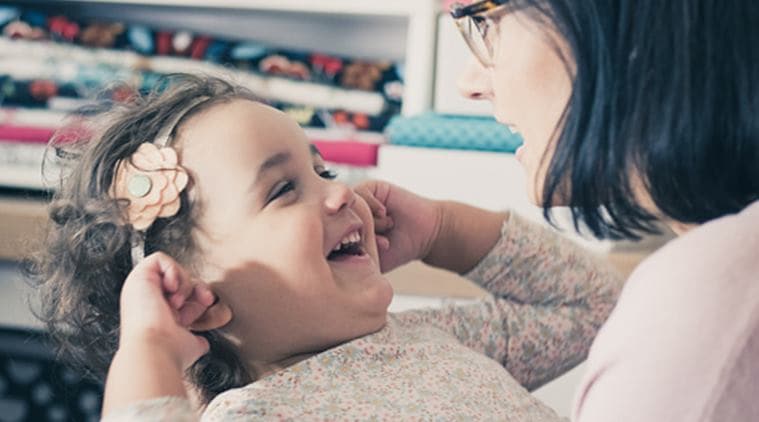Hearing loss in children: Causes, signs and the need for early intervention

Childhood hearing loss: Almost all of hearing loss can be treated if timely identified. 60 per cent of childhood hearing can be prevented, according to World Health Organisation (WHO).

Speech and hearing are essential instruments of learning, playing and building social skills for a child. If hearing loss goes undetected or untreated, there is a lot that the child misses out on, especially that related to speech and language. The delay in treatment or action can lead to delay in speech and/or language development, social and behavioural issues, and academic difficulties.
Almost all of hearing loss can be treated if timely identified. 60 per cent of childhood hearing can be prevented, according to World Health Organisation (WHO). Again, temporary hearing loss can be restored in many children with medical treatment or minor surgery. If a child has sensorineural hearing loss, it is permanent. Early intervention is crucial for better outcomes in terms of hearing and speech.
There are two major types of hearing loss in children, namely congenital (present from birth) and acquired (occurring after birth). Hearing loss is also classified as pre-lingual (before the development of language), peri-lingual (during language development) and post-lingual (after language development).
Causes of hearing loss in children
Hearing loss in children can occur as a result of various possibilities. Children can suffer from conductive, sensorineural or the mixed form of hearing losses.
Some of the possible causes of congenital hearing loss are:
• Infections at the time of pregnancy (German measles, toxoplasmosis, and cytomegalovirus)
• Medication like Ototoxic used during pregnancy
• Birth complications
• Nervous system or brain disorder
• Genetic syndromes, for eg. Ushers, Down’s and Waardenburg’s syndromes
• Family history of hearing loss
Acquired hearing loss is likely to happen due to some of the following reasons:
• Middle-ear infections left untreated
• Other infections like meningitis, mumps, measles or whooping cough
• Eardrum perforation
• Excess of exposure to extreme noise, such as fireworks or loud music
• Diseases like otosclerosis or Ménière’s disease
• A serious injury to the head
• Ototoxic medication
• Earwax
Signs of hearing loss in children
Watch out for these signs in kids:
• Turning up the volume of the TV excessively high
• Not responding appropriately to questions
• Not replying to call
• Watching others imitate what they are doing
• Have articulation problems or speech/language delays
• Academic struggle
• Earaches, ear pain or head noises complaints
• Difficulty in understanding what people are saying
• Appear to be speaking differently from other children his or her age
Early diagnosis and intervention
Universal newborn screening is done at birth to identify children with potential hearing loss. When identified, these children can be further assessed with a series of audio logical tests and radiological assessment of the inner ear structures. Children with severe to profound hearing loss can be treated as early as eight months of age with the help of cochlear implant surgery. Following cochlear implant surgery, the child can undergo aural habilitation and develop good hearing and speech. This will enable the child to enter mainstream schooling and lead a normal life.
The neural emergency period in congenital hearing loss is up to the age of two years. If intervention is done within this period, the best possible outcomes in terms of speech and hearing can be achieved. Delay in surgical intervention by cochlear implant surgery can reduce the chances of success of treatment.
Parents can also opt for special education programs that can help enhance the child’s hearing and understanding and ensure better development early on. If not taken note of, hearing loss can be for a lifetime and the child can face developmental challenges, emotional issues, and societal challenges for their entire life.
(With inputs from Dr Rohit Udaya Prasad, Consultant- ENT & Cochlear Implant Surgery, Aster RV Hospital)
Source: Read Full Article